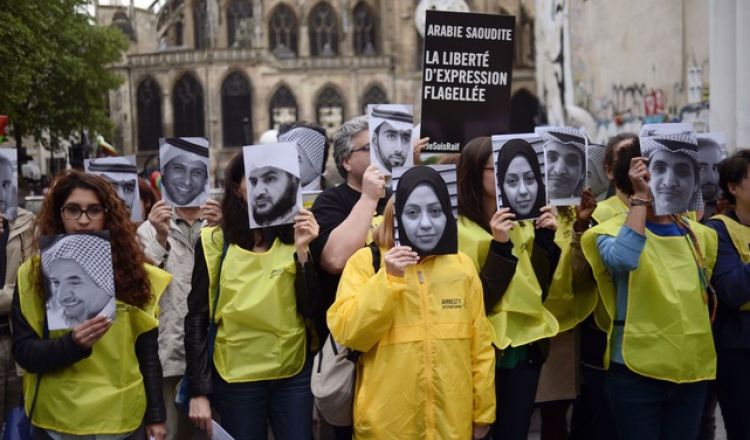Assault on Freedom of Expression in Saudi Arabia
2018-09-29 10:54

Journalist Support Committee: Stop the assault on freedom of expression in Saudi Arabia
Saudi Arabian authorities are using counter-terrorism laws to create an increasingly repressive environment for professional journalists, citizen journalists and photojournalists in the Kingdom. The ongoing crackdown is aimed at silencing all forms of dissent and all forms of free expression which are deemed a threat to the Saudi regime. There are however many who continue to criticise the regime despite the harsh reprisals that they are subjected to. Saudi Arabia has never been a free or a safe environment for journalists to work in, nevertheless, the situation at this present moment in time is deteriorating in an unprecedented manner. The World Press Freedom Index ranks the Kingdom as the 169th least free out of 180 countries.1
The emergence in recent years of social media platforms has, on the one hand, provided new avenues for freedom of expression however by publishing on these platforms citizen journalists in Saudi Arabia are constantly monitored by the regime. Posts on Instagram, Facebook, Twitter or videos uploaded to Youtube can each result in an arrest for citizen journalists in Saudi Arabia, this arrest will often take the form of an enforced disappearance. This makes it difficult to know the precise details of these cases, such as where someone is held, or, when and on what charges they will stand trial. Citizen journalists are vital in a country with no independent media and no editorial freedom. 2
One recent case, however, shows that even those professional journalists who are ostensibly apolitical and steer clear of criticising the regime are still never truly safe from the authorities. Marwan al-Mureisi wrote for the private news website Sabq his articles covered issues related to science, technology and innovation. Al-Mureisi steered clear of controversial topics such as politics and religion, nevertheless, he was arrested at the Specialised Medical Centre Hospital in Riyadh on June 1st where he was taken away from the bedside of his hospitalised 5-year-old son by Saudi security forces. 3
The imprisonment of Marwan al-Mureisi, female citizen journalists and women's rights defenders who have consistently opposed the driving ban such as Nouf Abdulaziz and Eman al-Nafjan paints a picture which starkly contrasts with the image that Saudi Vision 2030 and the symbolic lifting of the driving ban wish to portray. 4
Another example of the assault on freedom of expression in Saudi Arabia is the case of Israa al-Ghomgham, she is currently on trial alongside five other activists from the Eastern Province. The Public Prosecution arm of the Saudi courts is seeking the death penalty against five of those activists on charges of “participating in protests,” “attempting to inflame public opinion,” “filming protests and publishing on social media,” and “providing moral support to rioters.” 5 These charges represent a grave threat to freedom of expression in Saudi Arabia considering that “attempting to inflame public opinion” and “filming protests and publishing on social media” could now result in the death penalty.
The Journalist Support Committee calls on the Saudi Arabian authorities to immediately and unconditionally release all those who have been detained for exercising their inalienable right to freedom of expression (as detailed in Article 19 of the Universal Declaration of Human Rights.) 6
Journalist Support Committee - Switzerland
29 September 2018









